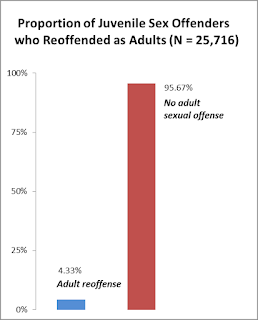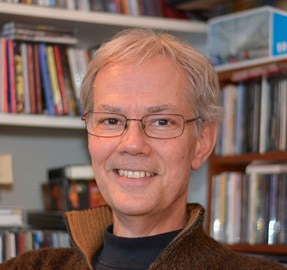From the Cleveland Plain Dealer
Sex offender registries draw criticism from some unlikely sources
From the Cleveland Plain Dealer
Sex offender registries draw criticism from some unlikely sources
 “If you ask John Q. Public about the public safety risk posed by a juvenile who has been arrested for a sex offense, chances are he will estimate too high. The public is woefully uninformed when it comes to risk of sexual reoffense in general, and nowhere is the gap between reality and media-driven anxiety wider than in the case of juvenile sex offenders.”
“If you ask John Q. Public about the public safety risk posed by a juvenile who has been arrested for a sex offense, chances are he will estimate too high. The public is woefully uninformed when it comes to risk of sexual reoffense in general, and nowhere is the gap between reality and media-driven anxiety wider than in the case of juvenile sex offenders.”
Read the post by Karen Franklin in Forensic Psychology, Criminology and Psychology-Law.
 “What is sexual victimization? The definitions change with history. It did not occur to me for years that Adam might have assaulted me. Sophie came to that conclusion in a matter of days. What most shaped my perceptions were feminist politics that stress sexual pleasure as much as sexual danger.”
“What is sexual victimization? The definitions change with history. It did not occur to me for years that Adam might have assaulted me. Sophie came to that conclusion in a matter of days. What most shaped my perceptions were feminist politics that stress sexual pleasure as much as sexual danger.”
Read the article by Judith Levine in Seven Days.
On one level, numbers shouldn’t matter: Rape is ugly, it’s serious and can have devastating consequences for its victims. But if numbers are being used to generate a national panic or to institute university policies that may cause more harm than good, then we need to assess them as dispassionately as possible, without being accused of being ‘rape cultured’ or supporting perpetrators.”
Read the op-ed in the LA Times by Dr. Carol Tavris.

“Prosecutors who bend or even break the rules to win a conviction almost never face any punishment. But even given lax controls, the blatant and systemic misconduct in the Orange County district attorney’s office in Southern California stands out. In a scheme that may go back as far as 30 years, prosecutors and the county sheriff’s department have elicited illegal jailhouse confessions, failed to turn over evidence that is favorable to defendants and lied repeatedly in court about what they did.”
Read the editorial by the editorial board of the New York Times.

“At what point do professionals in these settings openly acknowledge to them/ourselves that we are participating in systems that are openly unconstitutional and therefore unlawful according to the standards of much of the Western world? Even beyond American law, consider the case of Shawn Sullivan, who fled the US and was on Interpol’s most-wanted list. One of the UK’s highest courts denied a U.S. extradition request on the basis that Minnesota’s program to commit sex offenders indefinitely to treatment violates European human rights law. Lord Justice Alan Moses said returning Sullivan for trial with the possibility of later being placed in the sex offender system would be a “flagrant denial of his rights” under European law.
“With that in mind, professionals might also want to ask at what point we are violating basic human rights when we render “treatment” that no one can ever complete.
“As a profession, we have the research, the tools, and the templates to provide prompt and adequate treatment and to reduce the harm of sexual abuse, and yet we find ourselves in political climates where we cannot use them. At what point do we as individual professionals, or as professional organizations, take a stand against practices that are clearly not working to anyone’s long-term benefit? One need only look at the recent scandal of the American Psychological Association and its involvement with torture to see how collective inaction can ultimately bring disgrace to a profession.”
Read the full article by David Presoctt in Forensic Psychologist.